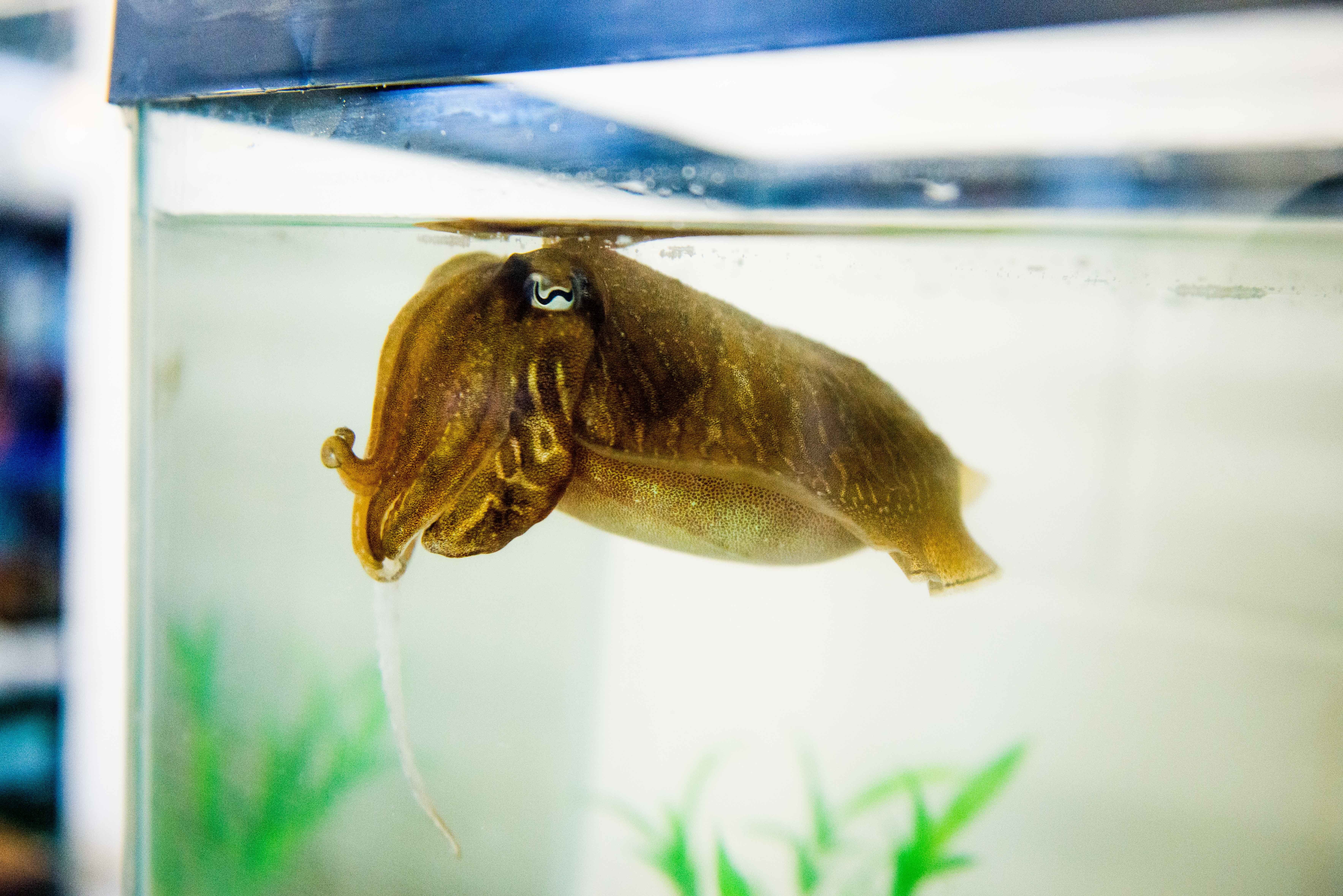Cuttlefish don’t lose memory with age, experts say
Ability could help the species to breed more widely, according to researchers

Unlike humans, cuttlefish do not suffer memory loss in later life, a new study has suggested.
Researchers believe this is the first indication of an animal whose memory of specific events does not diminish over time.
The finding came after tests were conducted on 24 common cuttlefish, or Sepia officinalis, in a collaborative project undertaken by academics from British, American and French universities.
In a series of memory tests, the cuttlefish had to associate a flag with a particular type of food, either king prawn or live grass shrimp, their preferred option.
To ensure they were not just learning a pattern, the location of the food drops was changed each day.
Many of the older animals, aged between 22 and 24 months, performed this recall task better than the younger ones, said lead author Dr Alexandra Schnell, a psychologist at the University of Cambridge.
"Cuttlefish can remember what they ate, where and when, and use this to guide their feeding decisions in the future,” Dr Schnell added.
"What’s surprising is that they don’t lose this ability with age, despite showing other signs of ageing like loss of muscle function and appetite."
It is thought that cuttlefish are able to retain their episodic memory better than humans because of the different make-up of their brains. Memory decline in humans is associated with the deterioration of the hippocampus, a part of the brain cuttlefish do not have.
Instead, these fish are believed to store memories in their vertical lobe, an area whose function only declines in the last few days of their lives.
The study’s authors believe the animals’ long memories could help them to breed more widely, once they start mating near the end of their lives. "We think this ability might help cuttlefish in the wild to remember who they mated with, so they don’t go back to the same partner,” Dr Schnell said.
Her team’s research is published in Proceedings Of The Royal Society B Biological Sciences.
Join our commenting forum
Join thought-provoking conversations, follow other Independent readers and see their replies
Comments
Bookmark popover
Removed from bookmarks